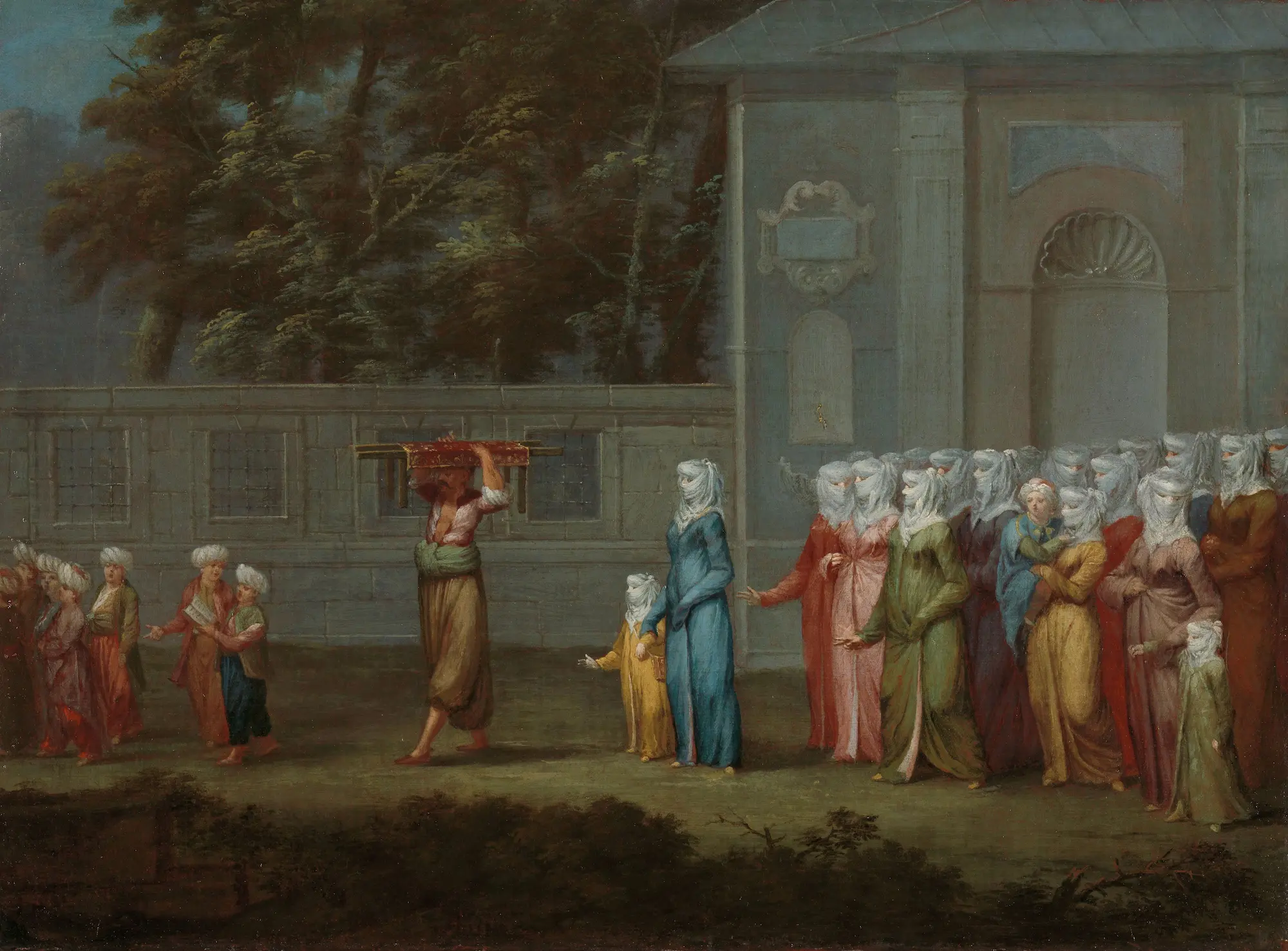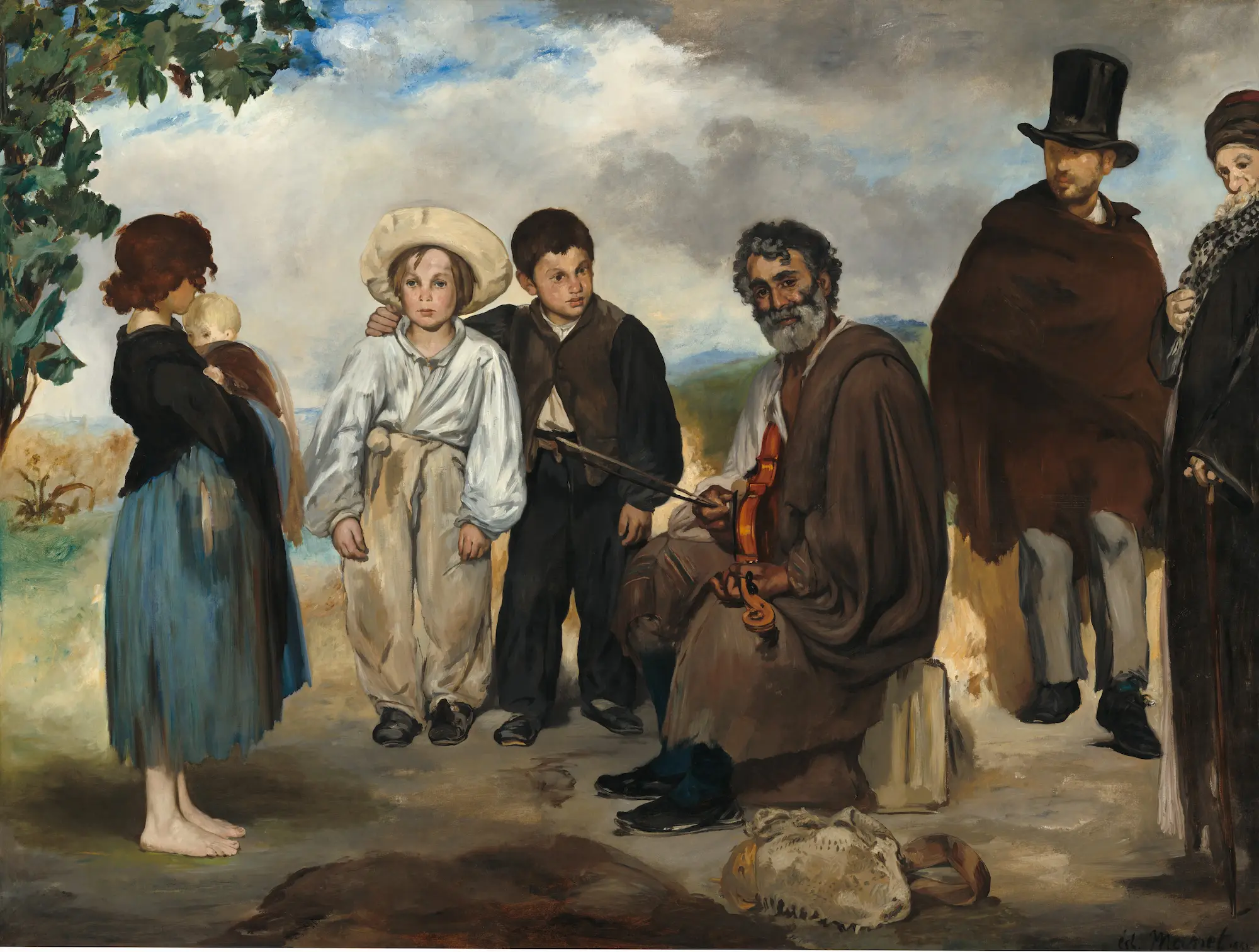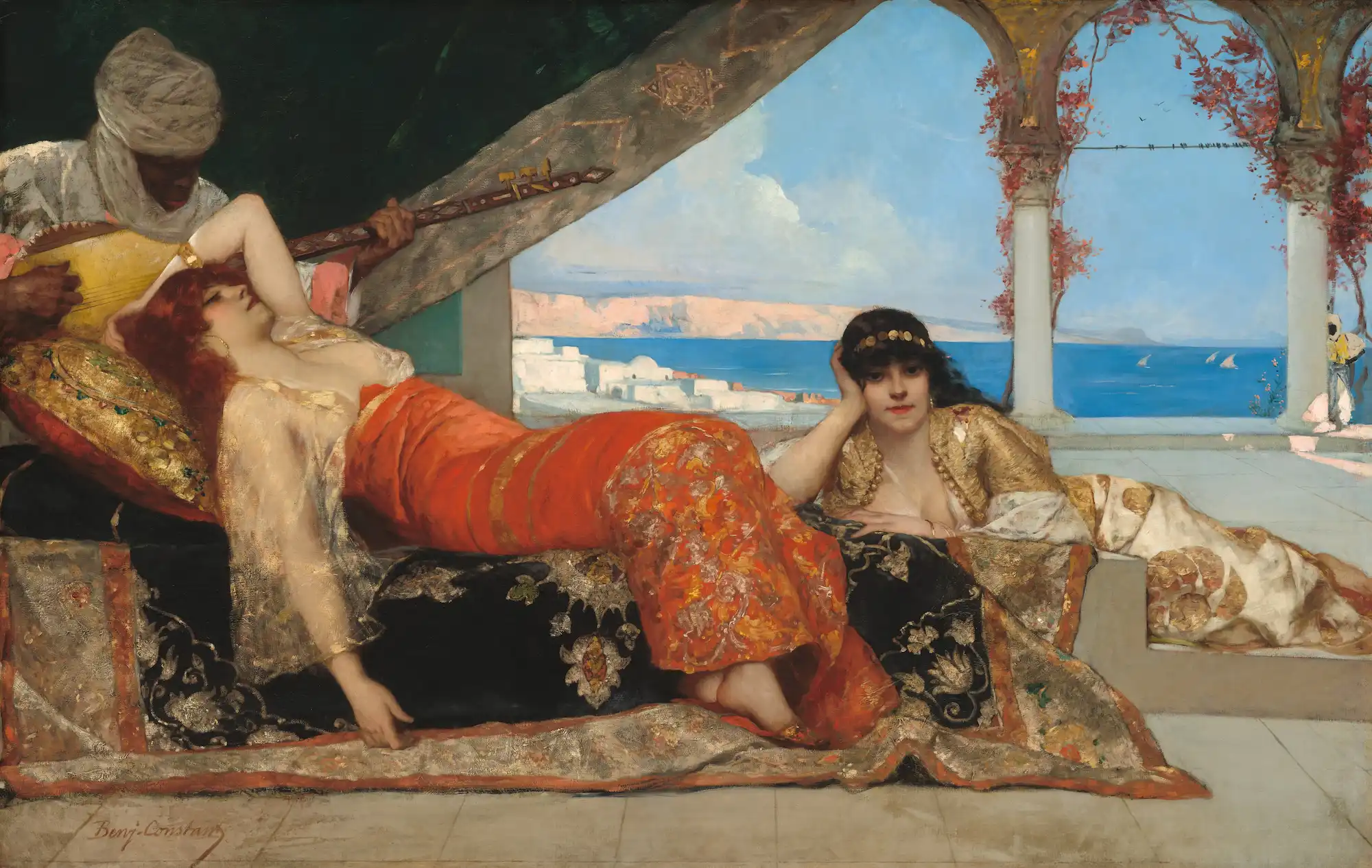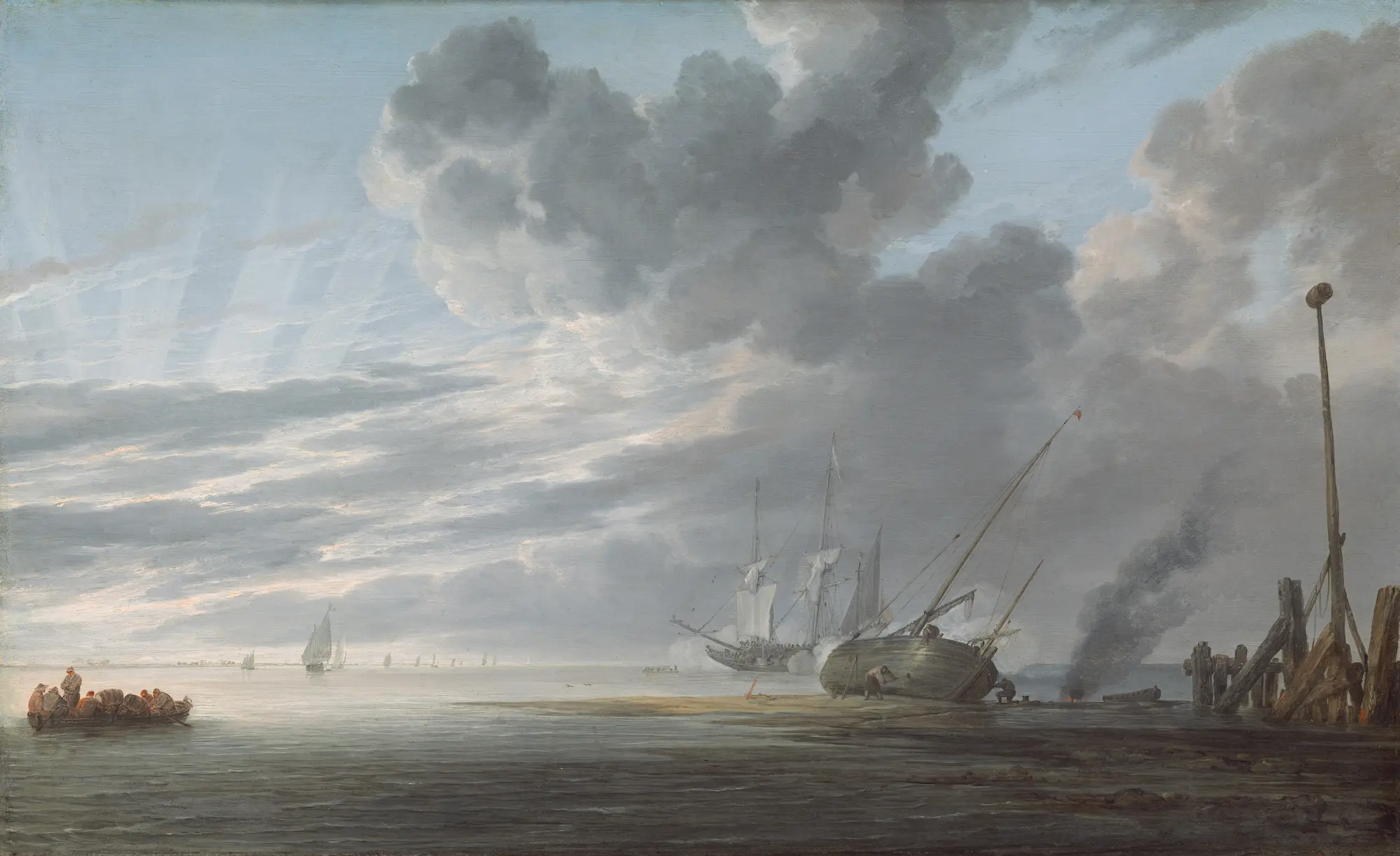
The First Day of School, by Jean-Baptiste Vanmour
Dreaming in the Round
A Brief Vision of Collective Poetry
Poetry is understood as the work of those who, like the wanderer in Caspar David Friedrich’s masterpiece, have climbed the mountain to perfect isolation. Their view is as valuable as it is unique. It is in poetry that the idea of the genius—that unit of specific and particular capability—arrives in its fullest form.
Wasn’t it the poet who declared, “I celebrate myself, and sing myself,” to an adoring readership, curled up with a copy by the bay window all alone? It is the poet who helped carve in exquisite relief the individual we are all trapped inside of now. Think of those romantics going on and on about their own little square foot of earth, blathering about the endless freedom that comes with escape from the small-minded crowd.
These are the necessary delusions of a time and place, all times and places have them. But what if change is coming to our time and place? Then we must look above to the greater cycles at play and participate in the arrival of that next movement: from many to one.
In a time when we are all suffering unto death for lack of simple kindness and fellow feeling, starved down to the bones for someone to touch our shoulder and share the softness of eyes meeting eyes, there really is no room for just a little more alone time. Surely we will call an end to this form of living that, in the “most advanced” cities in the world, now better resembles solitary confinement than membership in a community.
Surely we will end this, but we will need to be led out. The patients have become so sick that they refuse the medicine—after all, they are patients and it is medicine. How many people now say that social interactions actually harm them? How many are obsessed by the brutalizing effects of the slightest slight? We have been alone so long now that we are more afraid of what lies on the other side of an interaction than what another night by ourselves could bring.
This is a time when the solipsistic art of the poet as independent genius will no longer serve.
Now we could call for a poetry full of collective values. But that is not really poetry beyond the limits of the individual. It is merely poetry as we know it making a different point than before. Any success would result in the praise and acclaim of the writer, who must now compose their acceptance speech to be live streamed to all the screens in post-Christendom.
The real solution is a poetry written by a collective, freed from the singular ego, the monadic and heroic “I” dispersed into the etheric (notably uncapitalized) “we.” To speak of an I, one talks of something the borders of which are strictly monitored and delimited by legal and medical formulae. But to speak of a we, one talks of a negotiable, permeable entity with soft and dispersed borders. One is illustrated by the line, the other by the gradient.
How then do we cross that gradient?
The Labors
The techniques for collective poetry are many, but there do appear to be certain broad, recurring themes. And introducing random chance as a co-conspirator is by far the most important in getting started.
Randomizing particular conditions forces the group to solve problems immediately, and it can act as an arbitrary executive where no other member might appropriately do so. In this way, it creates two essential elements for coherent collective action: a shared enemy and clear leadership.
This randomization has many ways to enter. You can roll dice to find the number of stanzas and also the number of lines per stanza. You can pull tarot cards for guidance on themes. You can open up a book of poetry and flip to a page and blindly point to a line—let those be your opening words.
[Note: This reliance on chance might all change when a true collective spirit is rebuilt among us. Then we will have relevant traditions to play the role that randomization plays for us now. But we must wait for these new traditions to grow, as what survives today—like the Italian sonnet, the villanelle, the ottava rima—are but antique curios occasionally dolled up and prostituted in our sterile, contemporary poetics, which may be better thought of as an Olympics of cleverness than a genuine literature.]
When a group engages this statistical wave of choices, decisions must be made. And once a choice becomes fixed, the many poets are able to pick up on ideas that might flower from this soil. Soon, a poem blossoms.
It is common to find an eerie coherence when looking over the first draft. It seems as if the poets have gathered in a circle, and there is then some other thing born at its center. It is this ephemeral poet who writes the work, encouraged as they are by their parents all around. And if it seems this way, it might very well be this way.
Collective poetry, then, is an act of birthing this dreamer between. This birth is the actual labor. This middle being must be cultivated and cared for, encouraged on their way to the completed work.
Editing after the fury and confusion of the first draft, one finds that each member holds a personal perspective on that child in the center who brings with them fantastic images from some other place—or perhaps from this place, seen as it really is or really might be.
This is a process, then, of dreaming in the round. We merely witness this dreaming, and capture what we can with ink and paper.
Attaining Hyper-Orality
If a group of poets cannot be gathered in a single place, for today’s poets can be like that, there is still another method that produces a similarly collective poetry. It centers around the anonymous rewrite.
This method begins with a poem written by someone claiming no ownership worthy of a signature. This work is handed off, with the next person rewriting it to any degree of their choosing, again with no signature. The original must always be destroyed so that the rewrite becomes the only surviving descendent of that spermatozoic flash of inspiration that began in another poet, one who will eventually come back to the poem and find themselves no more the originator of the piece than anyone else.
This delivers written poetry to the vagaries that once befell and so defined oral traditions, giving it its most potent powers. The high level of transience and authorlessness provides the collective with the last word, always folding in greater and greater meaning like in the making of a sword. It is this long and selfless process of tweaking and generalizing that makes fairy tales and myths the richest forms of literature.
Given the artificial conditions with which the group brings such an orality about, generations of retelling can be accomplished in a short amount of time—arriving at the resin of a poem in a month when it would take all the bards of Europe centuries to reach the same essence.
In this way, it is a technique that amplifies the magic of oral storytelling by radically shrinking its timeline. Taken to its extreme by a group of significantly talented and dedicated poets, an entire civilization of literature might form in mere months. What could five years of concerted effort in this technique accomplish? Think of the egregores that could be created. Then again, think of the egregores that might, through unwise hands, be unleashed on the world.
Vanish the Poet
The self-annihilating practices that the above sections only vaguely sketch point to a fusion of poetry to the ultimate human tradition from which it was born and will, eventually, prove to be only temporarily stranded from.
We have to remember that poetry arose in a time when the campfire was the center of culture, when art and religion and mysticism and revelry and sex and fighting and hunting and making and euphoria were all part of the one act of living. Poetry was the language of this unity that wove together members of a community and every moment of life.
As economic specialization mitosed this oneness ad infinitum over the course of ten millennia, poetry eventually found itself the lantern-bearing hermit, walking through a dark forest for so long it has forgotten its home. But as surely as the hermit’s path leads away from the village, it must also return.
Bringing together these elements of human life will find them now greatened for their rumspringa, for their fool’s journey, so that they will form a totality superior to the one they were kidnapped from. But such a reunion requires sacrifice, as when the sheep’s throat is cut to herald the feast for a long-wandering son now home.
For poetry to join the collective pursuit of the species once again, we must serve the poet as an oblation to this greater endeavor.
If any poet reads this with terror, think of all those writers of verse who were sacrificed to the petty realities of mortality. But you — you have the chance to feed an ancient yet reborn god. And you don’t even have to die. You merely have to hand over the crown of genius to reign among equals as birthers of that subtle dreamer who delivers visions from places beyond the highest peaks we could ever climb alone.
February 14, 2023
About the writer
Jonathan Clark is a writer, tarot reader, weightlifter, and farmer currently living in the Blue Ridge Mountains. His work appears widely both online and in print, including on his website (www.jonathanclark.net).
Further considerations

Baby Boom and Bust
‘Howdy hoody! Lemme guess: you was just passing through the middle of middle England, and you recognized the flame-decorated Ferrari outside my Hobbit Hole, and you buzzed ‘cos you fancied a parley?'

Telling the Truth
I once told a therapist my father was molesting me. It wasn’t true. I was twenty-five and exhausted, lying awake most nights trying to understand why I felt so sad when nothing in my life was obviously wrong.

Thoughts of Endangered Paper
Here I am, looking at this copy of a // two hundred-dollar book.

this is about capitalism, and The Poet Sees Her Ex at Pride
duty pulled a mountain along lesser used roads. // time was ill-spent preparing workers for the crossing.